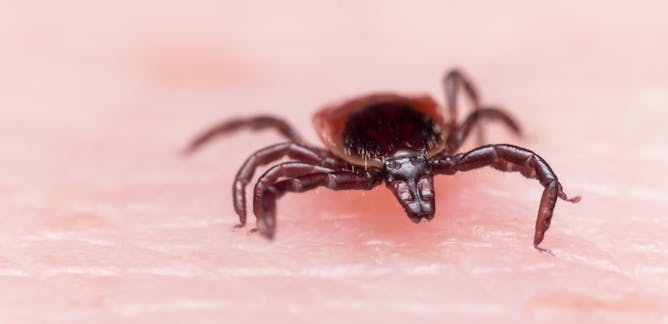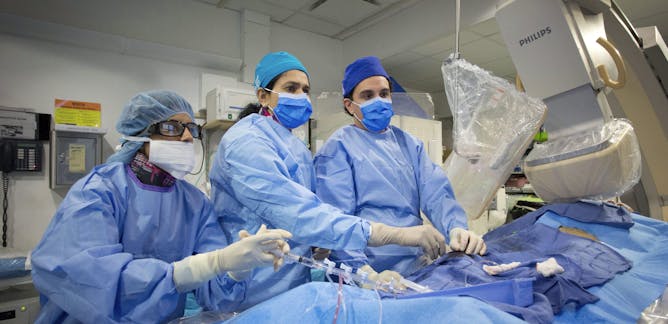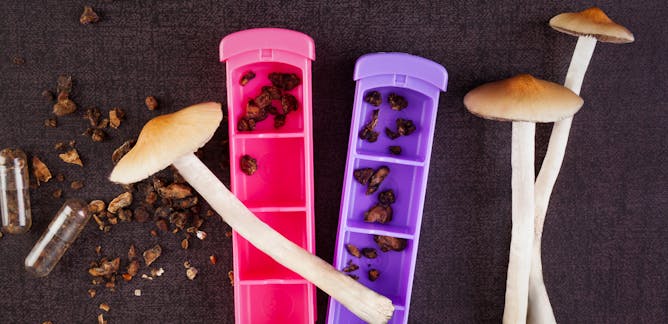|
Hello, I’m Heather Walmsley, the Health and Medicine Editor at The Conversation Canada. I’m really delighted to have spent another year collaborating with so many talented researchers on stories about human health.
Some of these are necessarily dark stories, arising in challenging times. They document the devastating impacts of the child welfare system on mothers whose children are in care, of crystal meth on gay and bisexual men, of drugs on migrant children in the United States and tuberculosis on infants in Nunavut. And of Canada’s shameful history of sterilizing Indigenous women. These are such important stories, calling our collective attention to the unacceptable health inequities that divide us.
Other stories dig deep into the worlds of pharmaceutical policy and economics. I am grateful here to Joel Lexchin of York University for helping us navigate this complex terrain with such rigour and insight – explaining the chaotic world of Canadian drug prices and the questionable reliability of these drugs. Not to mention what your doctor might be receiving from Big Pharma for prescribing them.
I also love the stories that have taught me something practical – like how to avoid Lyme disease, how to protect my kids from the wildfire smoke and how I can identify the more subtle signs of heart disease as a woman.
Incidentally, if I ever break my arm I won’t forget that, weirdly, I can strengthen it by exercising the other healthy one.
Finally, I’ve especially enjoyed working with those who are breaking new ground – developing ways to combat antibiotic resistance, for instance, and researching the potential of psychedelics for mental health. We do need to figure out a better way to manage death in this ageing society, and I like the idea of a future in which psilocybin could allow us all to pass more peacefully, without anxiety.
Regards,
|
The Year in Review: Health
|

Elizabeth Wall-Wieler, University of Manitoba
Mothers are dying prematurely after their children are taken into foster care.
| |

Rod Knight, University of British Columbia
The sexualized use of crystal meth by gay men is one of the key drivers of rising HIV rates and has many negative mental health consequences. Integrated sexual and substance use care is vital.
|

Sarah Giles, University of Ottawa
The TB epidemic is out of control in Canada's North. Eliminating the disease will require accurate data as well as government investment.
| |

Erika Dyck, University of Saskatchewan
Recent revelations of the coerced sterilization of Indigenous women in Canada are part of a long, complex and disturbing history -- in which feminism became a fight to keep one's own children.
|

Joel Lexchin, University of Toronto
The cost of a life-saving drug in Canada is rising by 3,000 per cent. A national pharmacare plan could bring order to this chaotic world of Canadian drug prices.
| |

Joel Lexchin, University of Toronto; Lisa A Cosgrove, University of Massachusetts Boston
In the run up to the Global Hepatitis Summit 2018, new guidelines for the management of hepatitis C should come under scrutiny – for financial conflict of interest and quality of evidence.
|

Joel Lexchin, University of Toronto
Big Pharma in Canada is far behind the curve when it comes to disclosing what payments to health-care professionals are for.
| |

Katie M. Clow, University of Guelph
Fall is peak activity time for adult blacklegged ticks, increasing the risk of tick bites on both people and pets.
|

Cecilia Sierra-Heredia, Simon Fraser University
And wildfires rage along the West Coast of North America, parents should know the impact on their children's health, and how to protect them.
| |

Scott Lear, Simon Fraser University
Heart disease is the number one cause of death for women globally. And yet women's symptoms and risk factors are less well recognized, and they receive less in-hospital care, than men.
|

Jonathan Farthing, University of Saskatchewan; Justin Andrushko, University of Saskatchewan
A research study shows that training the other limb can actually help preserve muscle in a broken and immobilized one.
| |

Rees Kassen, University of Ottawa
As a post-antibiotic future beckons, how can humanity protect itself against the proliferation of superbugs? Research suggests 'drug sanctuaries' in hospitals could be a promising solution.
|

Thomas Anderson, University of Toronto; Rotem Petranker, York University, Canada
According to new research, individuals who take small regular doses of psychedelics such as LSD and psilocybin mushrooms score higher on mental health, well-being and creativity.
| |

Bruce Tobin, University of Victoria
Research shows therapeutic psilocybin to be a safe and effective antidote to end-of-life anxiety and depression. Does prohibition therefore violate our right to "life, liberty and security?"
|
|
|